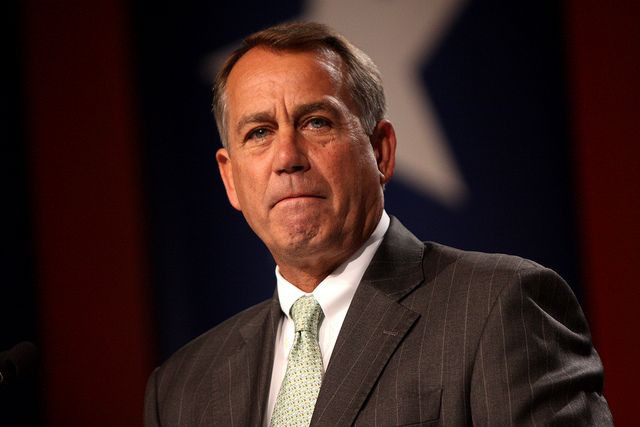Government Shutdown Update: House Votes To Delay Obamacare; Senate Plans To Propose Continuing Resolution

House Republicans voted early Sunday morning to approve a government-spending bill and attached an amendment that would delay Obamacare from going into effect for up to a year, a move that will surely be opposed by Senate Democrats. With the possibility of a government shutdown mere hours away, Senate Democrats refrained from taking action on Sunday.
Voting 231-192, the Republican-controlled House voted to approve the government-spending bill, albeit with the amendment for an Obamacare delay attached. The House also voted 248-174, against a medical-device tax that would have helped fund Obamacare, the Chicago Tribune reported.
This is the latest in an ongoing partisan match between House Republicans and Senate Democrats to amend the funding bill, of which House Republicans had originally included an amendment to defund Obamacare. In anticipation of a shutdown, the House also voted unanimously on a funding bill for U.S. soldiers so they will continue to receive salaries.
Senate Democrats did not convene on Sunday to vote on the House’s bill, but will meet at 2 p.m. on Monday afternoon, where they will likely remove any amendments regarding Obamacare and send the “clean” funding bill, known as a continuing resolution, back to the House for a vote.
“There is no ping-pong. House Republicans just need to decide whether to pass our clean continuing resolution or shut the government down,” a senior Senate Democratic aide told Reuters.
Meanwhile, House Speaker John Boehner reprimanded the Senate for taking Sunday off, calling it “an act of breathtaking arrogance” for the Democratic leadership to stall until Monday.
If both parties cannot compromise, a government shutdown would mean that only those government services deemed essential would be funded, such as national security and public safety, as well as benefit programs such as Medicare and Social Security. Meanwhile, other federal employees would be furloughed, and the government could default on its loans.
The last government shutdown occurred in 1995 when former president Bill Clinton spoke out against Republicans, represented by then-Spreaker Newt Gingrich, on funding for Medicare and other services. Controversy pinned the blame on Gingrich, damaging the Republican party's image and increasing Clinton’s approval ratings right before his re-election.
On Tuesday, Hillary Rodham Clinton vocalized her support for the Affordable Care Act, and hopes that an agreement can be reached. “This president is not going to agree to defund health care. We’re on a path to beginning the implementation,” she told CBS.
“If they want to shut the government down, that’s on their head and they’re responsible," she continued. "If they go even further, which is deeply distressing, and for the first time lead our country into a default on our obligations, that is not just partisan politics that is going at the heart of our credibility around the world.”



























